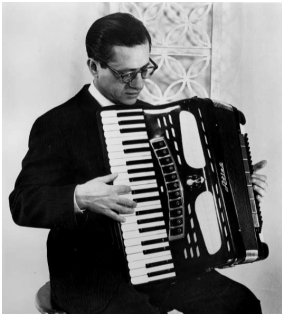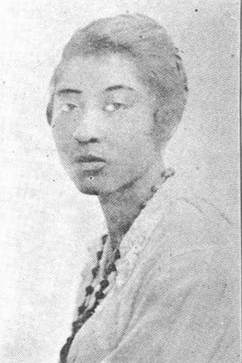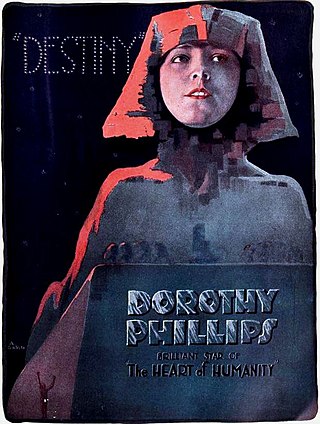Related Research Articles

Redbook is an American women's magazine that is published by the Hearst magazine division. It is one of the "Seven Sisters", a group of women's service magazines. It ceased print publication after January 2019 and now operates exclusively online.
James Edward Myers was an American songwriter, music publisher, actor, director, producer, and raconteur.
"Buttons and Bows" is a popular song with music written by Jay Livingston and lyrics by Ray Evans. The song was published on February 25, 1948 by Famous Music Corp., New York. The song was written for and appeared in the Bob Hope and Jane Russell film The Paleface and won the Academy Award for Best Original Song. It was originally written with an Indian theme, but was changed when the director said that would not work in the movie. It was a vocal selection on many radio programs in late 1948. It was reprised in the sequel, Son of Paleface, by Roy Rogers, Jane Russell and Bob Hope. In 2004 it finished #87 in AFI's 100 Years...100 Songs survey of the top tunes in American cinema.

John Serry Sr. was an American concert accordionist, arranger, composer, organist, and educator. He performed on the CBS Radio and Television networks and contributed to Voice of America's cultural diplomacy initiatives during the Golden Age of Radio. He also concertized on the accordion as a member of several orchestras and jazz ensembles for nearly forty years between the 1930s and 1960s.

Coronet Films was an American producer and distributor of documentary shorts shown in public schools, mostly in the 16mm format, from the 1940s through the 1980s. The company, whose library is owned and distributed by the Phoenix Learning Group, Inc., covered a wide range of subjects in zoology, science, geography, history and math, but is mostly remembered today for its post-World War II social-guidance films featuring topics such as dating, family life, courtesy and citizenship.

Idabelle Smith Firestone was an American composer and songwriter.
W. Augustus Barratt was a Scottish-born, later American, songwriter and musician.
The Melody Masters were a series of first-rate big band musical film shorts produced by Warner Brothers, under the supervision of Samuel Sax at their Vitaphone studio in New York between 1931 and 1939, and in Burbank, California with producer Gordon Hollingshead in charge between 1940 and 1946.
Norval Bertrand "Speed" Langworthy was an American lyricist, newspaper magnate, international relations expert, and advertising account executive.

A. C. Harris Bilbrew was an American poet, musician, composer, playwright, clubwoman, and radio personality known as Madame A. C. Bilbrew. She lived in South Los Angeles. In 1923, she became the first black soloist to sing on a Los Angeles radio program. She also hosted the city's first African-American radio music program, The Gold Hour, in the early 1940s. The A. C. Bilbrew branch of the LA County Library in Willowbrook was named in her honor.
Daniel Nathan Rubin was a playwright. Several of his plays were adapted into films, for which he wrote the screenplays.

Arthur Longbrake was an American songwriter and lyricist. He established the Eclipse Music Company. He wrote the words to "I'd like to know where I met you" and "On the Beach 'Neath the Old Willow Tree".

Destiny is a 1919 American silent film based on Charles Neville Buck's 1916 novel of the same name. The film was directed by Rollin S. Sturgeon and starred Dorothy Phillips. The film was produced and released by the Jewel Productions brand of the Universal Film Manufacturing Company. The scenario of the film was by Elliott J. Clawson.

Anton Lada was a ragtime, jazz and dance musician. He was a drummer. He played with and was the manager of the Louisiana Five. He recorded on Columbia Records and toured. Lada performed for dancing and vaudeville shows and made a series of recordings for Emerson Records, Edison Records, and Columbia Records.
McElbert Moore was an American playwright, screenwriter, and lyricist.
Esther Sommerstein Zweig was an American composer, writer, translator, and teacher. She was born in New York and studied at Hunter College, New York University, the University of Vienna, and the Jewish Theological Seminary. Her instructors included composers Walter Damrosch and Kurt Weill. She taught choral music in the Hebrew schools of New York from 1927 to 1937. Zweig set poems by Yiddish poet Aliza Greenblatt to music and translated works by other authors into English, Hebrew, and Yiddish. She married Jacob Zweig on June 29, 1930. From 1949 to 1950 she directed the Esther Zweig Ensemble in New York. Zweig received an award from the Jewish Theological Seminary in 1927 and a merit certificate from the University of Vienna. Today, the Jewish Theological Seminary awards the Esther Sommerstein Zweig Education Award annually to a student who has demonstrated unusual intellectual ability and potential for growth.
Leonard Anderson was an American film editor and film director, and he co-owned a film production company. Anderson's short films of African-American musical acts include footage of Anna Mae Winburn with the International Sweethearts of Rhythm, Lucky Millinder and his orchestra, and Henri Woode.

Phillip Kinteros Gomez was an American musician who played the clarinet. He appeared in the 1945 film It Happened in Harlem. Gomez served in the U.S. Army during World War II. His record lists Sonny Dunham as his employer at the time. Gomez served He recorded with Muggsy Spanier and his Jazz Band in 1954. He also recorded the song "Quiet Village" as Phil Gomez and his Jazzbos on the album Dixieland Mambo. He also recorded as part of Kid Ory's band and is with him in a 30-minute 1956 film from France. According to AllMusic, he led Phil Gomez's Swinging Kings and brought a Mexican influence to his music. According to IMDb, he plays in Ory's band in the 1956 film, The Benny Goodman Story.
Citizen Saint: The Life of Mother Cabrini is a 1947 film about a Catholic saint. It was directed by Harold Young. It was produced by Clyde Elliott Attractions. It is about Frances Xavier Cabrini, an Italian woman who becomes a nun and is eventually sainted. The film includes songs.
For other people with similar names see William Cowan
References
- ↑ Webb, Graham (September 6, 2000). The Animated Film Encyclopedia: A Complete Guide to American Shorts, Features, and Sequences, 1900-1979. McFarland. ISBN 9780786407286 – via Google Books.
- ↑ "The Singing Barbers (1947)".[ dead link ]
- ↑ "Catalog of Copyright Entries: Third series". 1948.
- ↑ Office, Canada Patent (April 6, 1948). "Canadian Patent Office Record" – via Google Books.
- ↑ "Universal Merrily We Sing Series No. 1: Sing and Be Happy (1946) Soundtrack". RingosTrack.
- ↑ "Catalog of Copyright Entries. Part 1. [C] Group 3. Dramatic Composition and Motion Pictures. New Series". 1946.
- ↑ "The Canadian Patent Office Record and Register of Copyrights and Trade Marks". Patent Office. September 6, 1946 – via Google Books.
- ↑ Office, Library of Congress Copyright (September 6, 1947). "Catalog of Copyright Entries: Third series" – via Google Books.
- ↑ Office, Library of Congress Copyright (September 6, 1977). "Catalog of Copyright Entries: Third series" – via Google Books.
- ↑ Office, Canada Patent (September 6, 1948). "The Canadian Patent Office Record and Register of Copyrights and Trade Marks" – via Google Books.
- ↑ Office, Library of Congress Copyright (September 6, 1977). "Catalog of Copyright Entries: Third series" – via Google Books.
- ↑ Office, Library of Congress Copyright (September 6, 1977). "Catalog of Copyright Entries: Third series" – via Google Books.
- ↑ Hurst, Walter E. (September 6, 1989). Film Superlist: 1940-1949. Hollywood Film Archive. ISBN 9780913616277 – via Google Books.
- ↑ DataBase, The Big Cartoon. "Sing And Be Happy Theatrical Series -Universal Studios". Big Cartoon DataBase (BCDB).[ dead link ]
- ↑ Office, Library of Congress Copyright (September 6, 1950). "Catalog of Copyright Entries: Third series" – via Google Books.